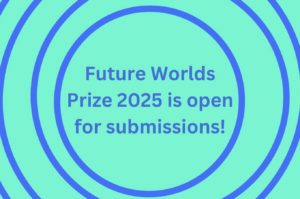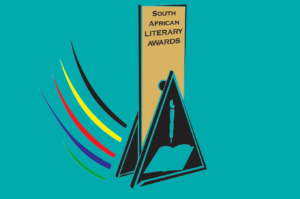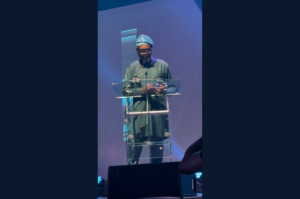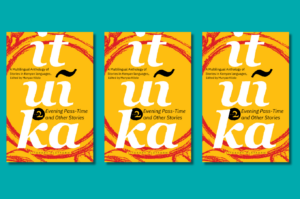
The Financial Times/OppenheimerFunds Emerging Voices Awards is “designed to recognize artistic talent in emerging-market nations.” It honours winners in three categories—art, fiction, and film—with each receiving $40,000 award, with two runners-up in each category receiving $5,000. The inaugural fiction award, in 2015, came home to Chigozie Obioma’s The Fishermen.
But when the FT/OppenheimerFunds Emerging Voices Awards was launched, it did not include Zimbabwe in its coverage given international sanctions against the country’s then president Robert Mugabe. This is the story of how Zimbabwe’s leading novelist secured the country’s eligibility for the award, whose 2016 Visual Art category was coincidentally won by a Zimbabwean artist: Gareth Nyandoro. Petina Gappah has given us one more reason, as if there weren’t enough already, that she is the ultimate motivation. Reasons for which she was named Brittle Paper‘s Literary Person of 2016.
This is what she posted on Facebook recently:
Inspired by a debate that has been swirling this week, and triggered by a fabulous tweet from Lance Mambondiani, I am going to tell my story of how I used my own version of quiet diplomacy to personally fight sanctions, and won a small but important victory for Zimbabwe.
In 2015, my favourite newspaper, and one I have written for on a few occasions, launched a new prize for artists. It had an unwieldy name: The Financial Times Oppenheimer Fund Emerging Voices Award. And it had a huge purse. Open to artists from Latin America, Asia and Africa, it promised 40 000 US dollars to each winner in three categories, Film, Literature and Visual Art.
The list of eligible countries was provided for each continent. But the last country listed under Africa, the only country that began with the letter Z, was Zambia.
Ini kanha nazvo. What gives, I wondered. Where is Zimbabwe?
So I wrote to the FT. I believe there has been an oversight, I said. Zimbabwe is not on the list. I got back an email from the prize administrator. It was no oversight, she explained. This is what she said, and I quote: “Due to sanctions against Zimbabwe, it would not be possible to pay the winner if the winner was Zimbabwean.”
I was so crushed. Already, our athletes and artists were shut out of the Commonwealth games and prizes and from so many other things. I pushed back, very gently, and asked why this was so. The sanctions, I said, were targeted at certain individuals, surely.
She wrote back to say their bank, HSBC, was not allowed to transact in Zimbabwe.
I pushed back some more. But I used to write for the FT when I lived in Zim, I said. And you paid my money to my account in Geneva. Surely you can think of creative mechanisms to get around this absurdity. I added that it was a pity to shut out Zimbabwean artists when they were in fact among the people least cushioned by government’s punitive measures and by the tanking economy. This prize would be a real break to our artists, I said, just imagine the visibility it would give.
Three weeks later, I got a very nice message. They had reconsidered, and found a mechanism by which they could pay the winners if they were from Zimbabwe. So Zimbabwe was now included.
I punched the air and shouted, YES! Then I went to my favourite department store in Geneva and bought myself a very, very nice wine to celebrate.
That year, I entered the Literature contest, and told every Zim writer I knew with an eligible book to enter. I was delighted to be long-listed. I did not make the shortlist, so I did not win. But I felt I had scored an important and necessary victory.
Then came 2016. In this year, a Zimbabwean artist won the Visual Art portion of the competition. That he is Gareth Nyandoro, a dear friend of towering talent, made it all the sweeter. I bought one of Gareth’s paintings many years ago, and felt then a visceral excitement because I just knew that he was going to blow up. And how he has blown up. This award was just one of the things that happened to him that have opened up his work to so many people. When he won, truly, I felt as though I had won.
This is the thing that the sanctions debate is missing. No, Lance Guma, it is not just about the targeted sanctions, There are a number of chilling measures that go beyond these targeted sanctions, that go beyond ZIDERA, that have been taken to isolate Zimbabwe internationally. You can call them inconveniences, you can call them blockages, you can call them sanctions, whatever you call them they have the same chilling effect of isolating Zimbabwe. As Lance Mambodinani said, we all suffer.
And this is why I am glad to have done my small part in fighting one expression of these chilling measures. And why I will continue to fight.
How do we begin to describe Tete Petina?









Fred Khumalo December 21, 2017 03:56
Well done, Petina. We are proud of you, in southern Africa. That is what i call activism. Artists cannot afford to have their heads up there in the clouds while their countries are on fire. Roll up the sleeves and work - let that pen, that computer be your weapon in the struggle for change. And, by the way, can a Brittle reporter find out what happend to this FT Emerging Voices contest. It seems to have just fizzled out. What happened?